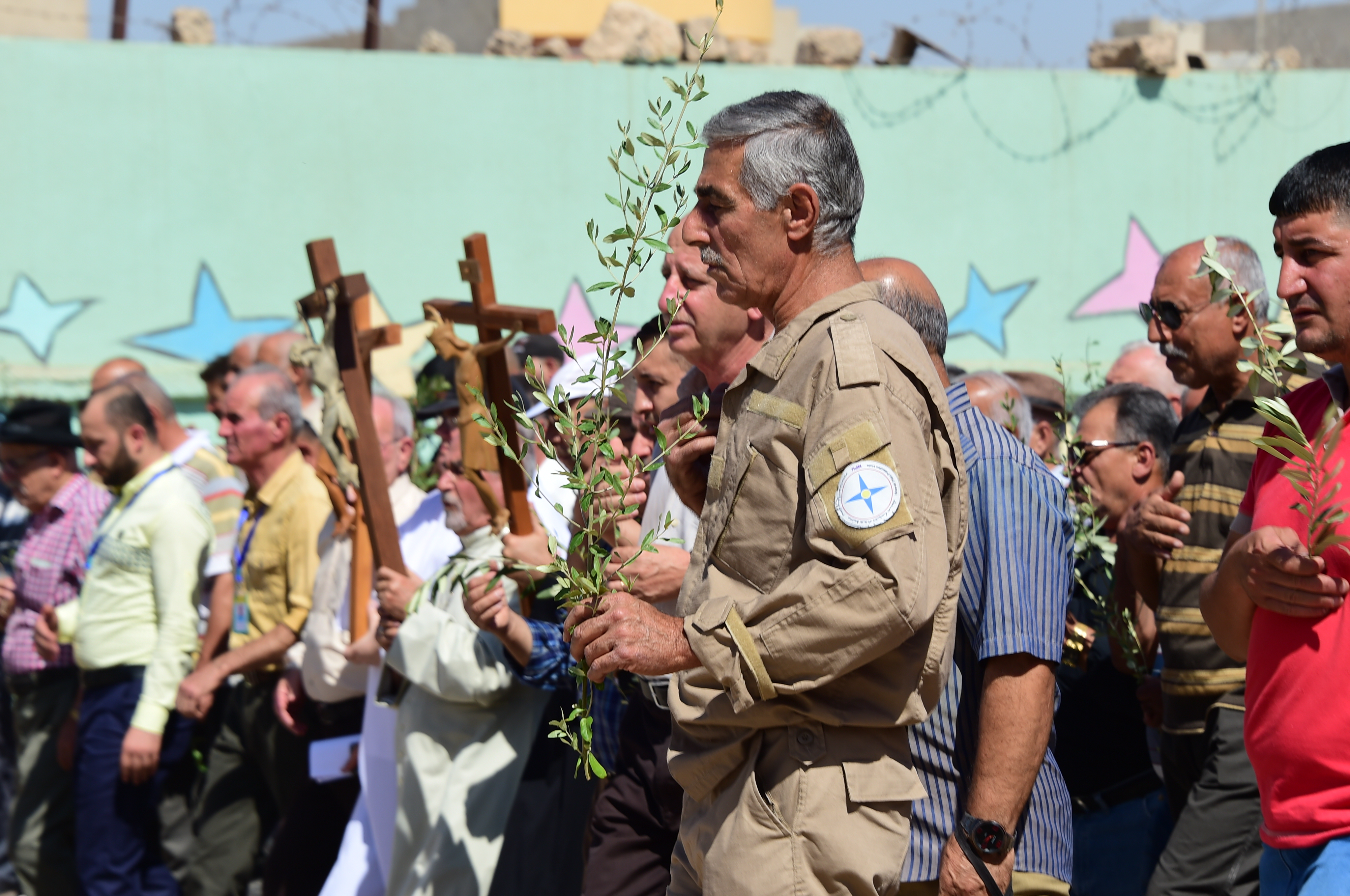The leader of the Chaldean Church has called on the Iraqi government to put in place and enforce laws “that guarantee Christians and other religious minorities … full citizenship and freedom in practicing their faiths explicitly.” “The absence of serious steps” to protect the rights of minority faiths in the country, said Cardinal Louis Raphael Sako in a statement sent to Aid to the Church in Need, “will push the remaining Christians and minorities to choose emigration.”
Christians and minorities “have played a significant role in enriching Iraq’s cultural, social and economic diversity, making valuable contributions to education, health, public administration and social services,” said the Cardinal; without them, Iraq would become “a country with one homogeneous fabric [that] could be isolated from the world and [which] may generate a kind of radicalism, [and] ethnic and sectarian fanaticism.”
Patriarch Sako listed a number of factors that are pushing Christians and other minorities toward leaving the country. These include the ongoing “fragility of the security situation” and Iraq’s “institutional weakness at the level of justice,” the state’s failure to protect non-Muslims from discrimination in the realms of “education, employment and social life,” as well as at the political level. Christians with outstanding professional qualifications, the cardinal charged, are denied positions only because of their faith. “Qualification and competence,” the cardinal insisted—and not an individual’s faith—should be the “measure for employment.”
Furthermore the patriarch noted that Christians are denied their rightful quota of five seats in the Iraqi Parliament. He also called for the application of “a civil law for all Iraqis,” rather than Christians and other religious minorities being “subjugated to [an] Islamic court, [with regard to] spiritual, religious matters, marriages, inheritance, etc.”
Patriarch Sako proposed a number of additional “practical measures” to fight the “injustice and discrimination” suffered by religious minorities. He called on the Iraqi leadership and “political ‘powers’” to combat “religious extremism that uses violence” and to take measures toward “disarming militias; providing security and stability; combating extremism, discrimination, terrorism and corruption.”
The cardinal insisted that the Iraqi political leadership should promote “citizenship values” that support the common good by drawing on “principles of freedom, dignity, democracy, social justice and true relationship among all Iraqi citizens regardless of their religious, cultural and ethnic affiliations.” Such policies will bring about harmonious “coexistence with Muslims” for Iraqi’s religious minorities.
Finally, the Patriarch called for laws that help create “good conditions that guarantee Christians and other religious minorities … full citizenship and freedom in practicing their faiths explicitly; preserve their heritage, archeological and historical monuments as an integral part of Iraqi civilization, in order to enable them to continue their lives with dignity.”





